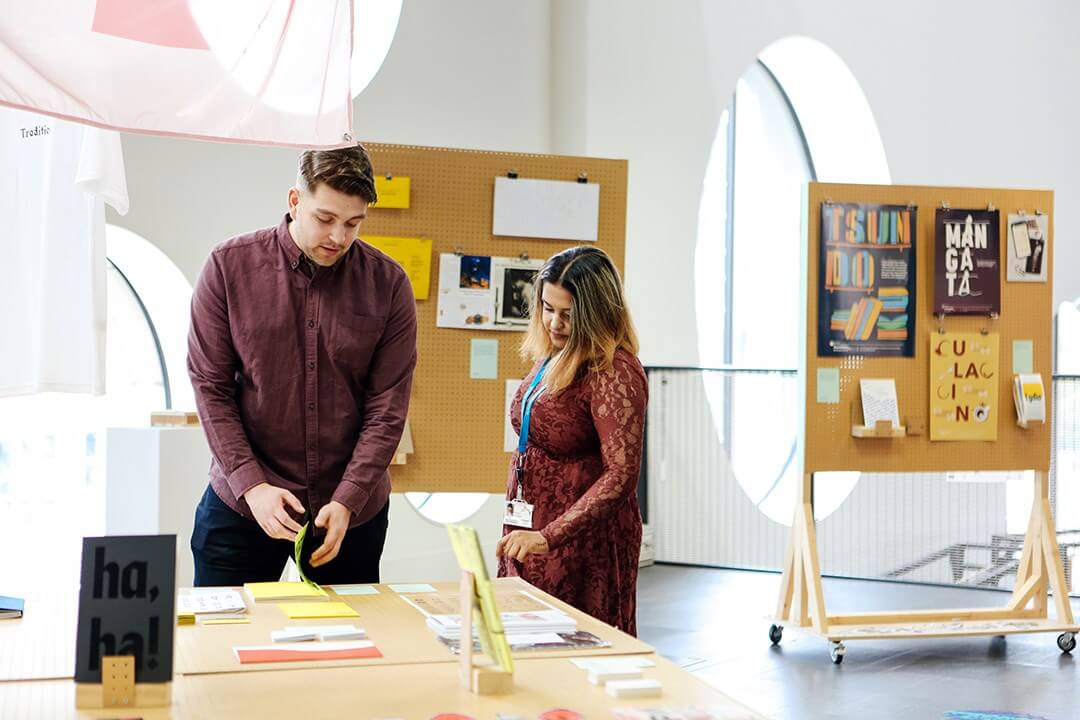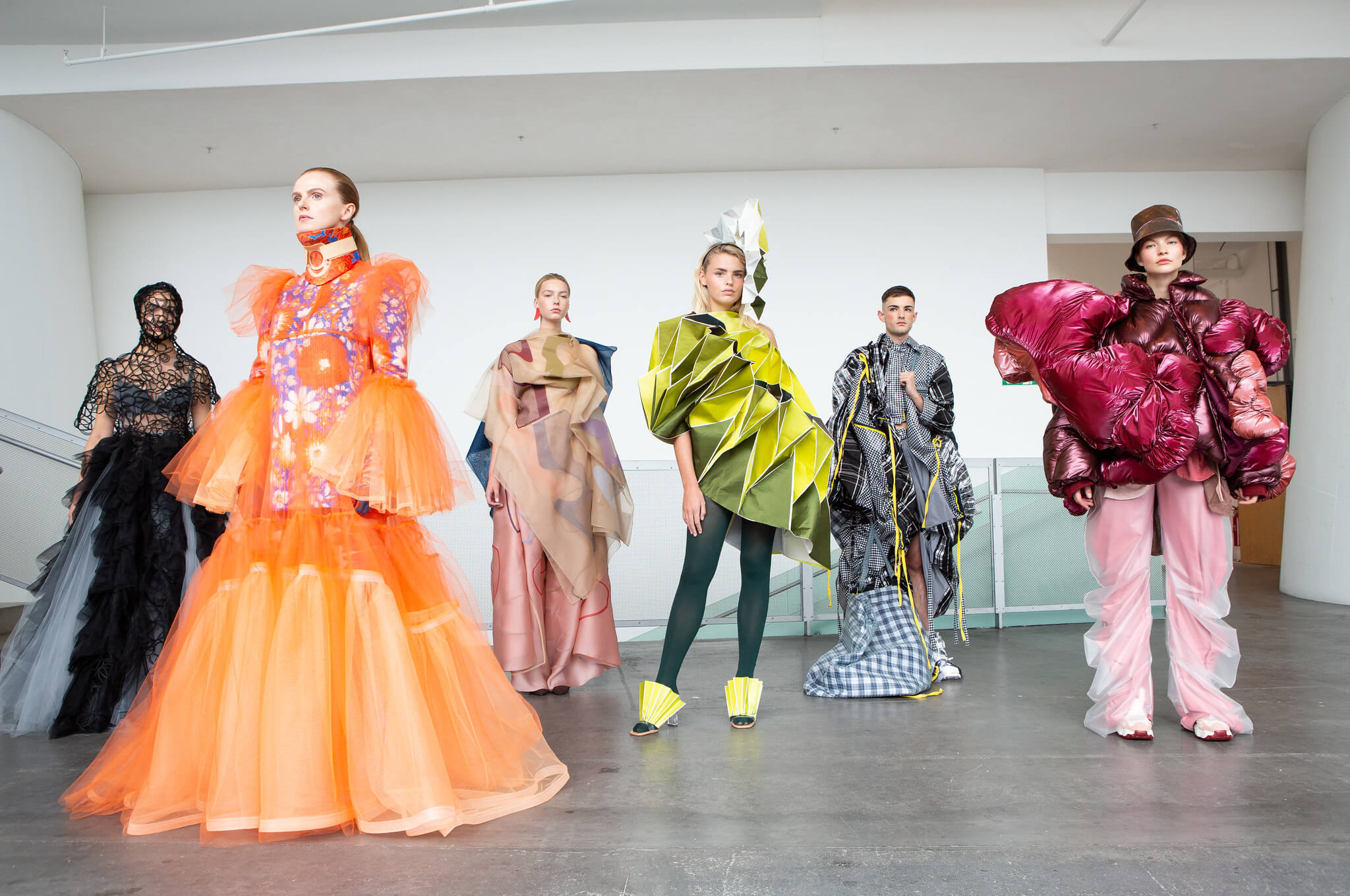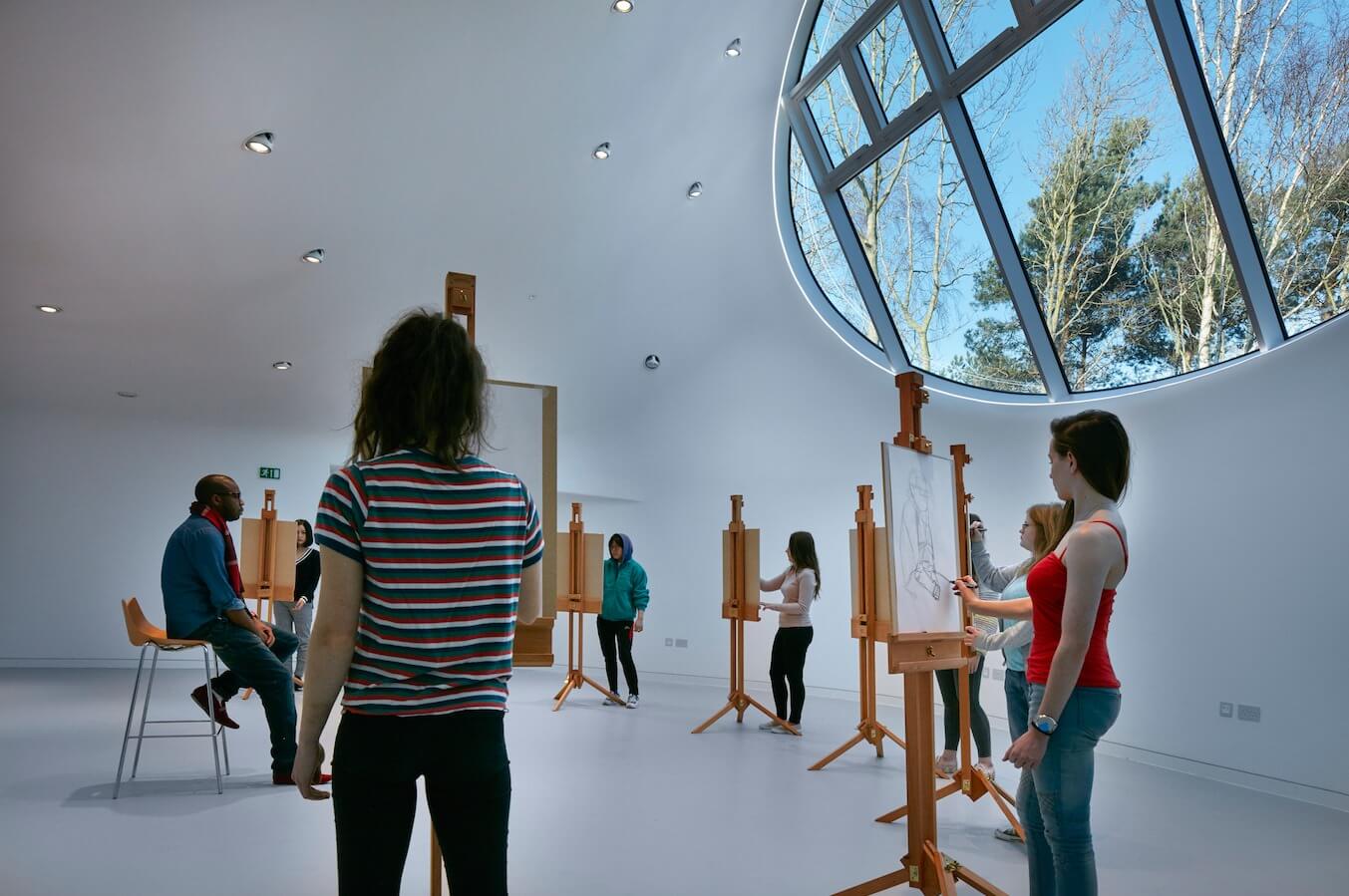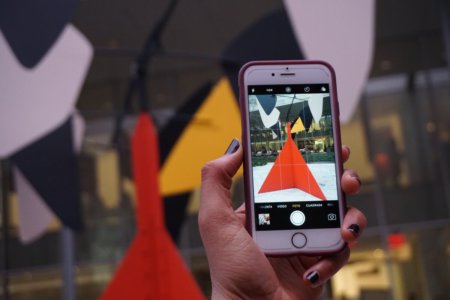
Almost everything we wear, sit on, look at, hear, and touch was created with input from creative professionals, a field to which artists belong and in which they engage with hearts, minds and hands. This applies not just to “digital arts” but also to painting, drawing, sculpture, ceramics, photography, and printmaking.
Arts graduates are an important part of what the future workforce needs. Research and predictions from the World Economic Forum have shown that soft, transferable skills (such as creativity, diversity and cultural intelligence) will, in fact, be most in demand for jobs of the future. If predictions are right, Deloitte Access Economics says you can expect the proportion of jobs requiring these skills to rise to 63% by 2030.
While technology transforms, jobs requiring only technical skills are at risk of becoming redundant and graduates who are able to think critically will be even more sought after. Critical thinking is a skill artificial intelligence can’t replace. In all industries, there is a need for staff members, leaders and decision-makers who hold exactly the kind of creative, communication, emotional and cultural intelligence skills that are the crux of art programmes.
Here are three schools producing arts graduates that the future workforce needs:
Ravensbourne University London
If you’re looking for an arts education with the highest calibre of teaching, cutting-edge facilities and exceptional industry connections, look no further. Ravensbourne University London is the place to be. Located in Greenwich, a beautiful riverside setting just minutes from central London, the university prepares you for a rewarding career in industries such as design, media and technology.

Located in the heart of London, Ravensbourne prepares you for a rewarding career in industries such as design, media and technology. Source: Ravensbourne University London
Ravensbourne offers the perfect fusion of creativity and digitisation through its undergraduate programmes in Animation and Illustration; Architecture and Interiors; Computing and Games; Digital Technology and Photography; Fashion; Graphics and Design; Marketing and Advertising; Music and Sound; and TV and Film.
Postgraduate programmes have been designed with industry, for industry. Choose from Design Communication; Luxury Brand Management; Illustration; Service Design; Architecture (MArch); Craft Editing; or Social Innovation. Ravensbourne students love these programmes, giving a 93% satisfaction rate overall and a 91% satisfaction rate in design and creativity (Postgraduate Taught Experience Survey, 2020).
Whichever programme you take, you’ll stand apart from the competition — 90% of Ravensbourne students are in employment or further study within six months of graduation (Graduate Outcomes Survey for 2017-18). “I’ve worked non-stop on live briefs with huge clients, such as WWE and Barclays,” shares BA (Hons) Advertising and Brand Management graduate Michael Bailey. “This has given me the confidence to take on the industry myself and seek placements and internships, which led me to kick-start my career before I even graduated.”
When Ravensbourne says they got your back, they mean it. At the Institute for Creativity and Technology, which can be found in the Design District, postgraduate students have access to prototyping facilities, virtual reality/augmented reality and mixed reality labs, research labs, Incubation+ and dedicated events and exhibition space. Students in need of funding or financial assistance can find out more about bursaries and scholarships here.
Glasgow School of Arts
Founded in 1845, the Glasgow School of Arts is today recognised as one of Europe’s leading higher education institutions for education and research in the visual creative disciplines. The school has one aim: to contribute to a better world through creative education and research.

A GSA experience truly is accessible to all. Source: Glasgow School of Arts
A GSA experience truly is accessible to all. Start with the fact that the school accolades include being ranked third in the UK, fifth in Europe and eighth in the world for art and design in the QS World University Rankings 2021. The school offers an extensive range of courses in art, design, fashion and communication.
Here, students benefit from a studio-based approach that creates the environment for interdisciplinarity, peer learning, critical enquiry, experimentation and prototyping — helping to address many of the grand challenges confronting society and contemporary business.
The school offers undergraduate programmes in: 3D Modelling; Architecture; Communication Design; Engineering with Architecture; Fashion Design; Fine Art Photography; Games and Virtual Reality; Interaction Design; Interior Design; Painting & Printmaking; Product Design; Product Design Engineering; and the list goes on.
Young professionals looking to upskill or reskill can opt for postgraduate courses in
Architecture; Art Writing; Communication Design, Fashion and Textiles; Fine Art Practice; Heritage Visualisation and many more. Prepare to be surrounded by innovation and inspiration as you work in its modern workshops, studios and other facilities.
GSA is a school that cares. From Student Welfare and Learning Support and Development to Supporting Students with Disability and Support for International Students, the school has proven through its record of providing specialist support services that complement and underpin the core provision available through the academic departments.
Arts University Bournemouth
Set in one the UK’s most beautiful award-winning natural locations, Arts University Bournemouth is a place to shape and build your work; to learn, share and collaborate.

At the Arts University Bournemouth, you will be immersed into a thriving digital and creative environment, as well as a richly artistic community. Source: Arts University Bournemouth
Bournemouth is home to one of the fastest growing creative and digital hubs in Europe, with its digital sector supporting more than 7,500 digital jobs and contributing over 340 million pounds to the UK economy.
Here, you will be immersed into a thriving digital and creative environment, as well as a richly artistic community. The school offers a wide range of undergraduate programmes in: Acting; Animation Production; Architecture; Creative Writing; Dance; Design; Fine Art; Graphic Design; Illustration; Interior Architecture and Design; Make-up for Media and Performance; Modelmaking; Performance Design and Film Costume; Photography; Textiles and so forth.
At the postgraduate level, the programmes will deepen your understanding of a subject; giving you the chance to critically approach your work and hone your practice. Push boundaries, enrich your professional practice and build on your achievements through courses in: Architecture; Animation Production; Design and Innovation; Digital Fashion Innovation; Film Practice; Fine Art; Graphic Design; Historical Costume; Illustration; Painting; Photography; Arts as well as PhD Research Degrees.
“You’ll use your understanding in your chosen subject to create and innovate, enhancing your practice in new and creative ways,” says Phil Jones, Dean of Graduate School and Research. “Develop your knowledge, learn new skills and stand out in your industry.”
*Some of the institutions featured in this article are commercial partners of Study International










